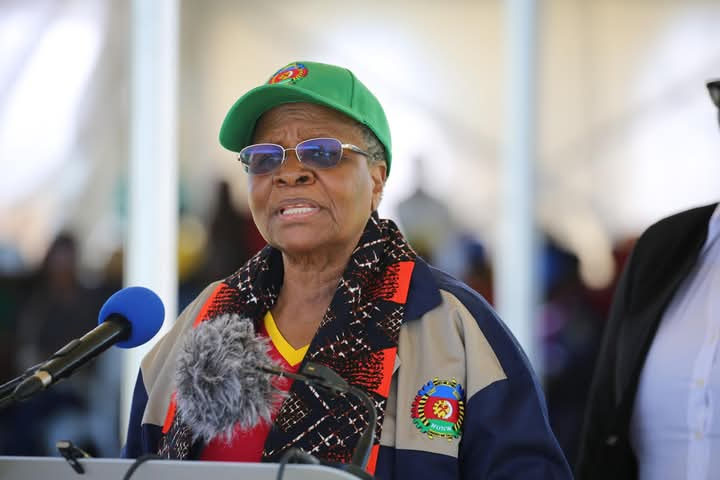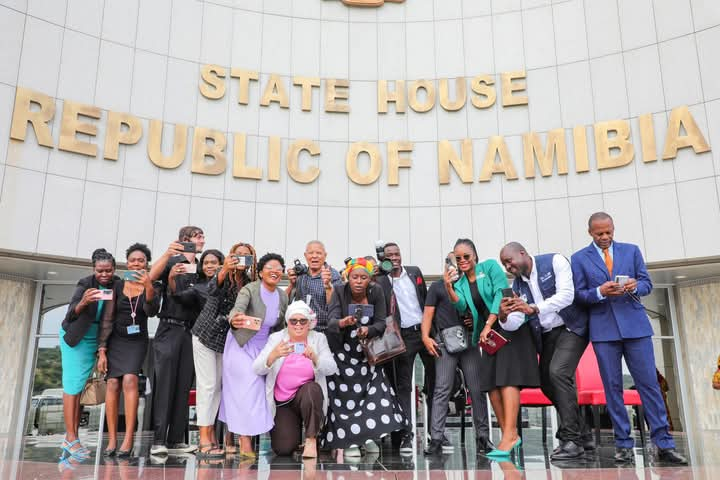RELUCTANCE on the part of Namibia to sign an interim economic partnership agreement (EPA) with the European Union (EU) will probably stop champagne corks from popping in Brussels today, where Botswana, Lesotho, Swaziland and Mozambique were supposed to sign the controversial agreement.
Barely a week ago, the Office of the European Commission (EC) in Windhoek was still positive that Namibia would put pen to paper in the Belgium capital.Yesterday, though, EC spokesperson Emma Mbekele confirmed that the historic event had to be postponed ‘to find a date to suit all parties’.No other details were available at the time of going to press.Namibia, South Africa, Angola, Botswana, Lesotho, Swaziland and Mozambique are negotiating as the SADC-EPA block with the EU. However, Namibia, South Africa and Angola have also formed the ANSA group because they share particular economic concerns regarding the EPA. In addition, South Africa and Angola each have separate issues with the EPA. South Africa has an existing trade deal with the EU, namely the Trade, Development and Co-operation Agreement (TDCA), which runs until 2012. Angola has unresolved issues regarding its status as a Least Developed Country (LDC).Observers therefore expected South Africa and Angola not to be part of today’s signing.However, without Namibia on board, it is unlikely that the EU would conclude interim EPAs with Botswana, Lesotho, Swaziland and Mozambique, the Trade Law Centre for Southern Africa (Tralac) told The Namibian yesterday.In his State of the Nation Address three weeks ago, President Hifikepunye Pohamba said although some progress has been made in the EPA negotiations with the EU, ‘more work remains to be done’.Namibia provisionally initialled the interim EPA in 2007 to ensure quota- and tariff-free access to the EU’s markets, but is still wrestling with major concerns regarding job and revenue losses, regional integration and capacity. Also still unresolved is the Most Favoured Nation (MFN) clause, which requires a World Trade Organisation (WTO) member country to treat all its fellow WTO trading partners the same. Namibia could therefore not offer one of its major trading parties any benefits without automatically also offering it to the EU.Meanwhile, Prof Gerhard Erasmus of Tralac has warned that only South Africa currently has the administrative machinery to implement trade remedies and safeguards stemming from the SADC EPA.According to the EPA text, these will be governed by relevant agreements of the World Trade Organisation (WTO) and disputes must be settled through WTO procedures.’The implication is that the private sector in the SADC states (and the governments) will not be able to invoke protective measures against dumped or subsidised EU imports unless the necessary domestic arrangements for implementing the applicable WTO measures are in place. The same considerations will apply with regard to safeguard measures,’ Erasmus says in an EPA piece on the Tralac website. If South Africa does not join this EPA, Namibia and the other SADC states will have to develop their own mechanisms. Furthermore, the new infant industry safeguard will require its own set of new legislative and administrative measures in each of the SADC EPA states, Erasmus says.’It is still uncertain if South Africa will join this EPA,’ he points out.Although this isn’t necessarily a bad thing, as it will establish rules-based arrangements, it will require urgent action from countries like Namibia to get their house in order.’Our states and the private parties within our region (the real traders) will not be able to reap the benefits of legal remedies, certainty and predictability unless the governments in the SADC EPA states establish the necessary domestic frameworks and develop the technical capacity to deal with the associated challenges,’ Erasmus says. ‘They will have to do so in time – to be available when this EPA becomes operational,’ he stresses.jo-mare@namibian.com.na
Stay informed with The Namibian – your source for credible journalism. Get in-depth reporting and opinions for
only N$85 a month. Invest in journalism, invest in democracy –
Subscribe Now!










